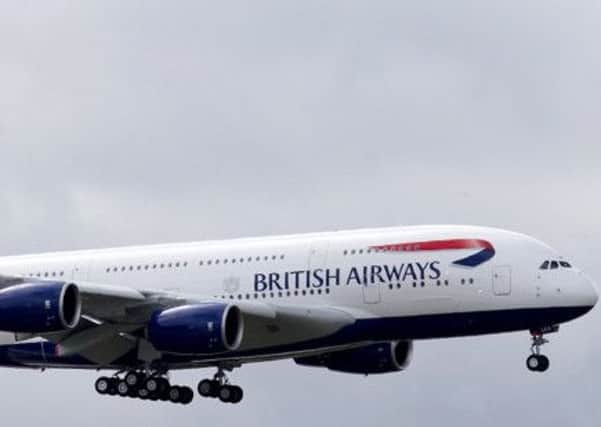Maiden divi now on the horizon at BA parent group


International Airlines Group (IAG), which now also owns Spanish budget carrier Vueling, said the dividend was possible because it believed earnings would rise by more than 10 per cent a year between 2016 and 2020.
IAG said that would follow significant profit growth this year and next. “We remain confident in meeting our 2015 financial targets which we see as the trigger to introducing a dividend,” the company said in a statement ahead of an investor day yesterday.
Advertisement
Hide AdAdvertisement
Hide AdBefore their £5 billion merger, neither BA nor Iberia had paid a dividend since 2008 when the financial crash hit the aviation industry hard.
Both airlines had made huge losses as both business and leisure traffic fell off badly, and was a key rationale of the creation of the bigger group.
IAG said that its first divi would be based on a formula of 25 per cent of underlying post-tax profit. The much-delayed cheer for shareholders next year follows years of radical restructuring at the parent company and its operating subsidiaries, including the axeing of routes and thousands of redundancies.
City aviation analysts said yesterday that the restructuring, plus the introduction of new, more fuel-efficient aircraft had put IHG on a strong financial footing, making the restoration of investor payouts possible.
IAG is seen as having outperformed European rivals such as Air France-KLM and Lufthansa, which have a history of stormy relations with their powerful unions and have been hit by strikes.
Also boosting IAG’s profits are the healthier economic growth in the British and American economies – to which it has more exposure because of its strong transatlantic business – compared with the French and German economies that the rival airlines are more dependent upon.
And while Air France and Lufthansa have been trying to expand their discount operations in order to reduce costs to compete with the likes of no-frills airlines EasyJet and Ryanair, IAG have already been benefiting from its acquisition of the low-cost Vueling in 2013.
Looking to the 2016 to 2020 period, IAG said it would target average earnings per share growth of more than 10 per cent a year and an operating profit margin of 10 to 14 per cent.
Advertisement
Hide AdAdvertisement
Hide AdIt had already flagged that it expected to boost profit by as much as 78 per cent in 2014, and a further 31 per cent to €1.8bn (£1.4bn) in 2015.
“While long-term targets in the volatile airline industry need to be taken with a pinch of salt, at least we have confirmation of a dividend and confidence in the future,” Jefferies analyst Ian Rennardson said.
SUBSCRIBE TO THE SCOTSMAN’S BUSINESS BRIEFING